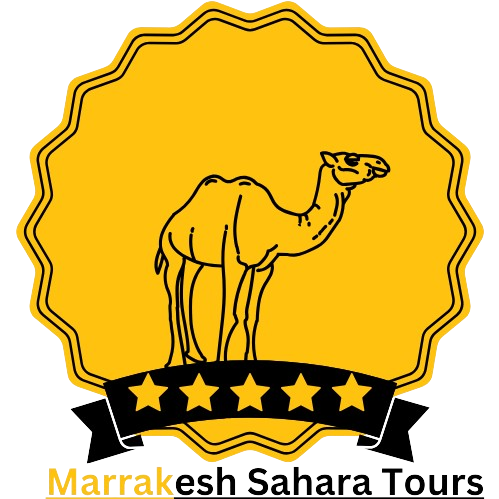Unlock the Secrets of Morocco: Essential Travel Tips for an Unforgettable Adventure
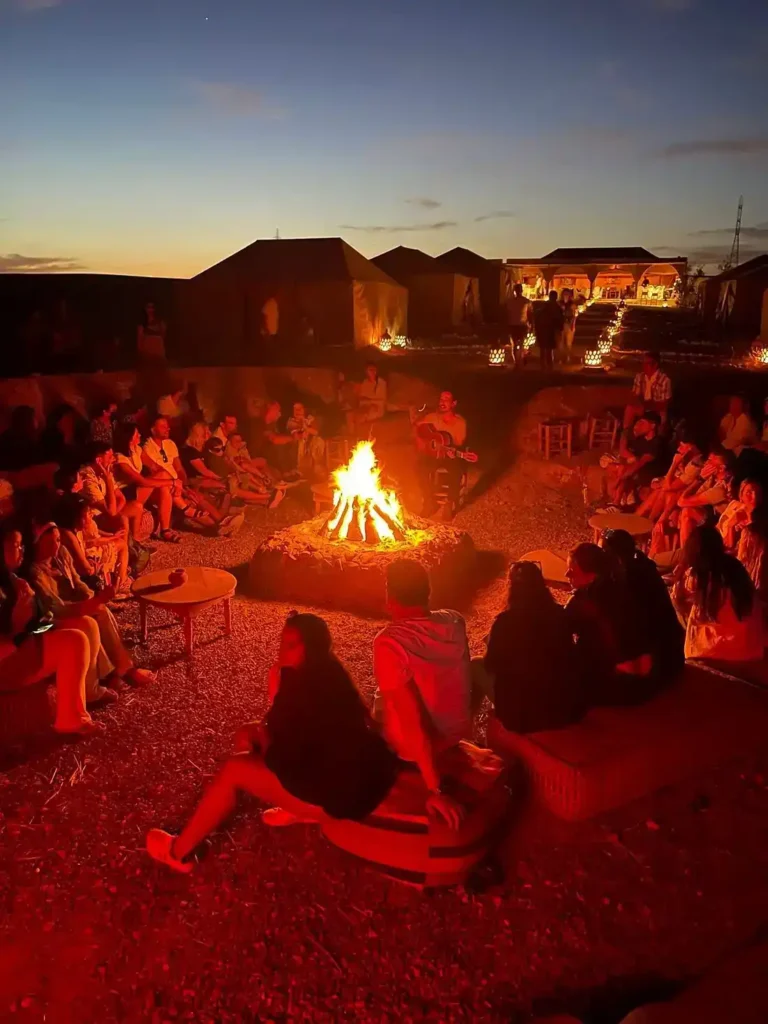
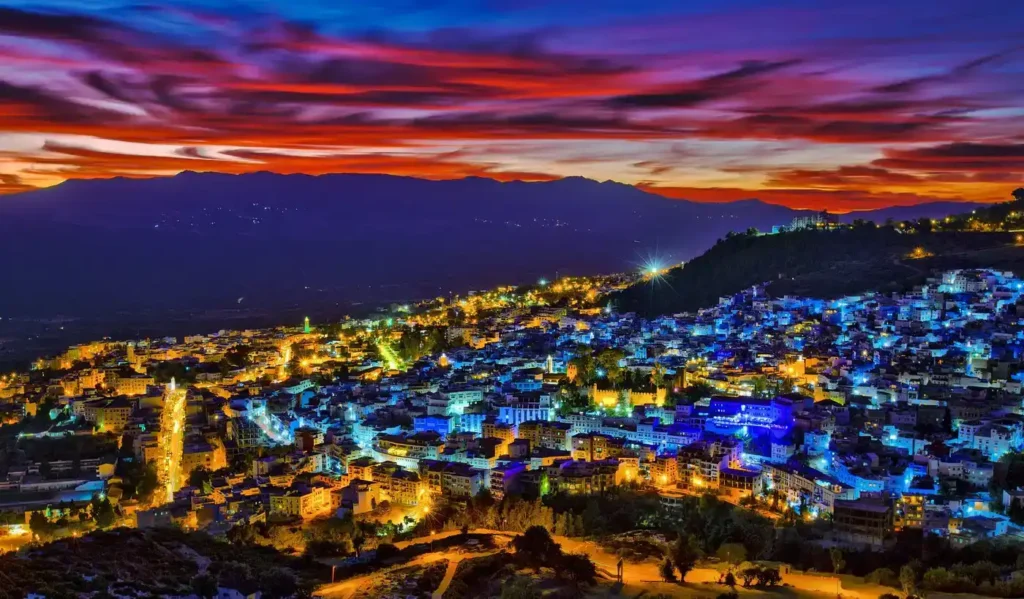
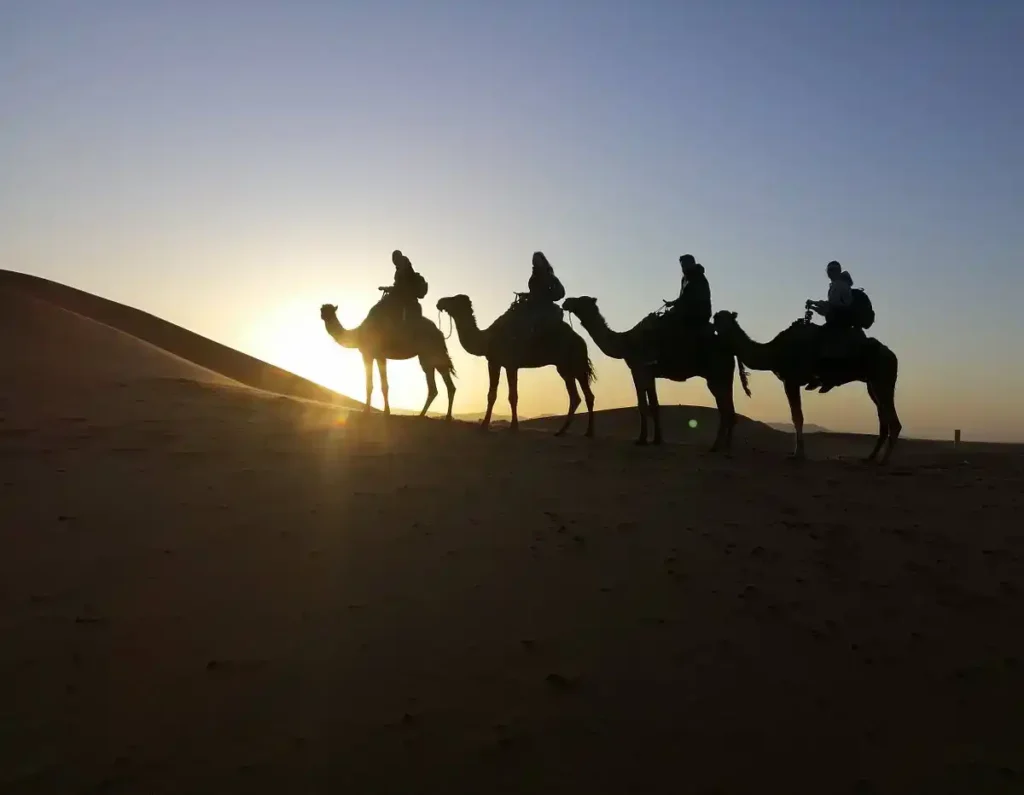
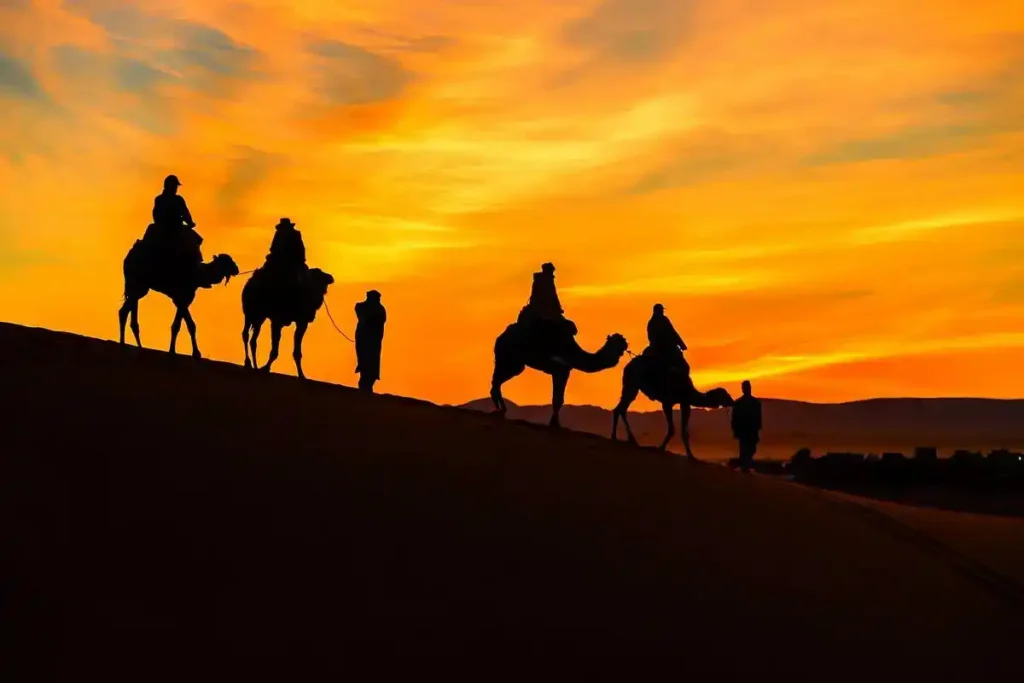
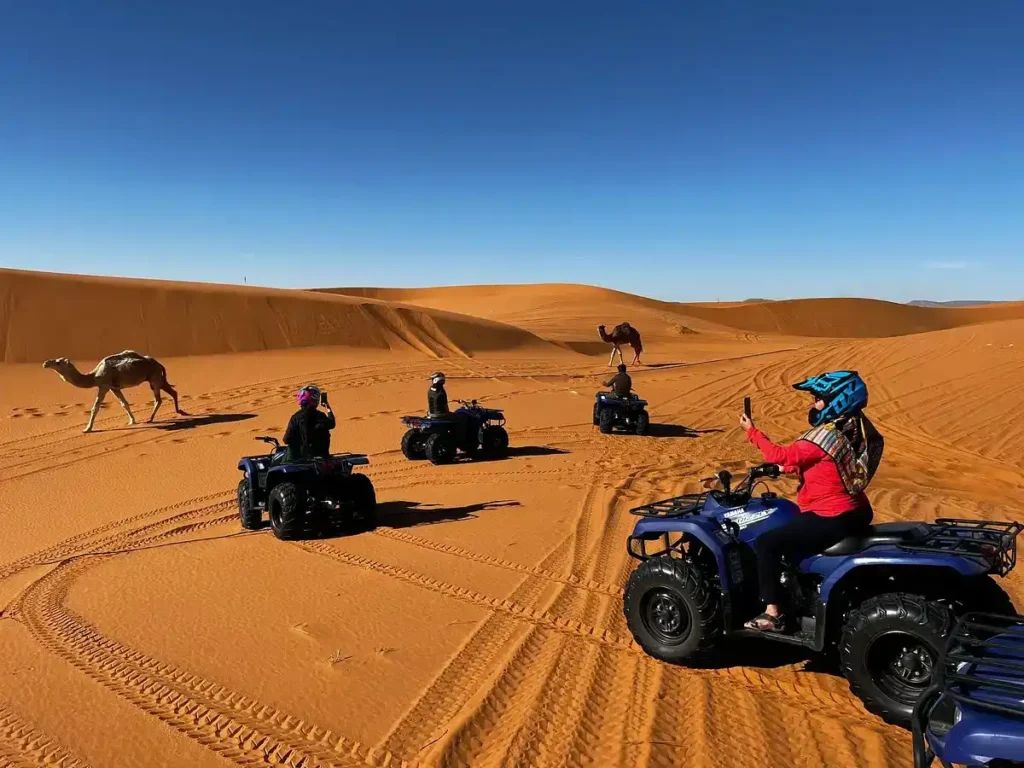
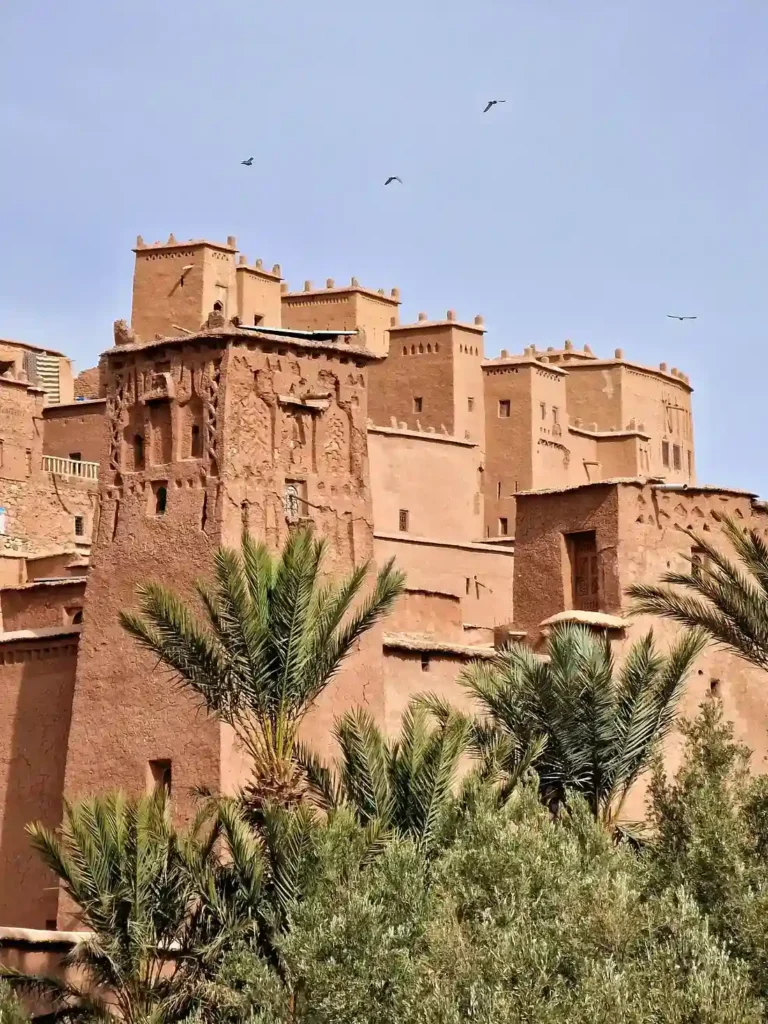
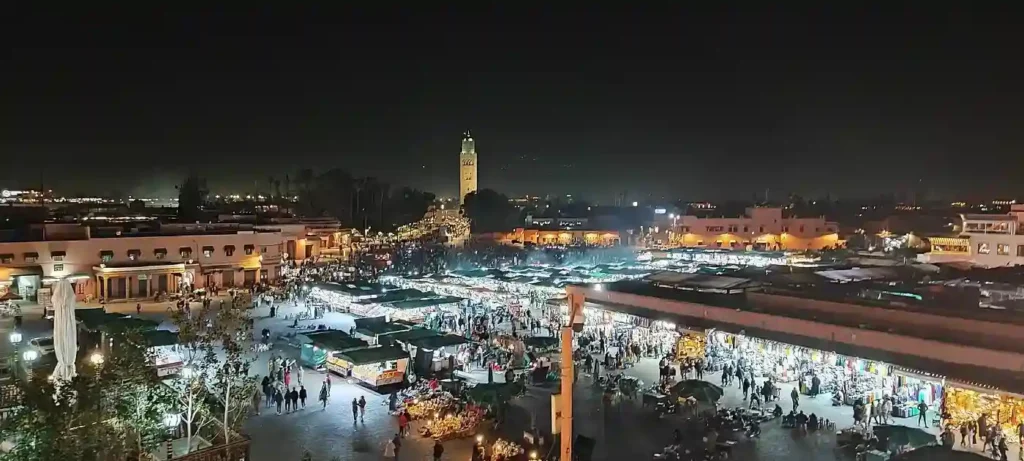
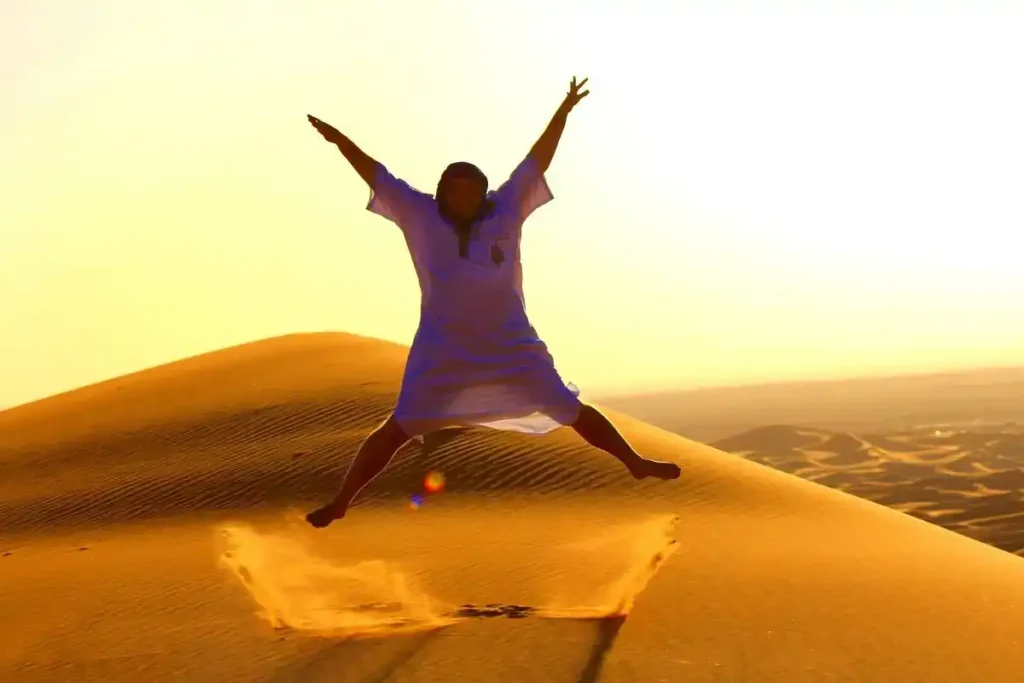
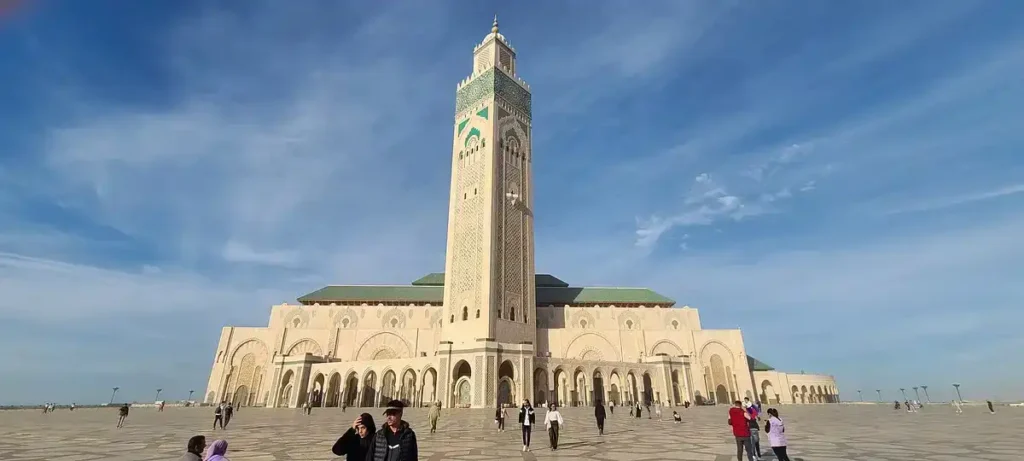
Embark on an enchanting journey through Morocco, a land that captivates with its vibrant culture, majestic landscapes, and ancient history. From the bustling streets of Marrakech to the serene Sahara Desert, this North African gem has something to offer every traveler seeking an unforgettable adventure. Whether you’re a thrill-seeker looking to trek through the Atlas Mountains or a culture enthusiast eager to explore the intricacies of Moroccan cuisine, this article will provide you with essential travel tips to make the most of your trip. Immerse yourself in the rich tapestry of Moroccan tradition as you wander through the labyrinthine medinas, haggle in the bustling souks, and marvel at the intricate tilework of the historic riads. Discover the secrets of the Sahara as you ride a camel across the golden dunes, witnessing the breathtaking beauty of the desert landscape against the backdrop of a fiery sunset. Indulge in the flavors of Moroccan cuisine, tantalizing your taste buds with aromatic tagines, spice-infused couscous, and sweet pastries. This guide will equip you with invaluable insights on transportation, accommodations, local customs, and must-visit attractions to ensure a seamless and unforgettable Moroccan adventure. Get ready to unlock the secrets of Morocco and its Travel Tips and create memories that will last a lifetime.
Must-visit destinations in Morocco
Morocco is a treasure trove of diverse landscapes and vibrant cities, each offering a unique glimpse into the country’s rich heritage and cultural tapestry. One of the most iconic destinations is Marrakech, often referred to as the “Red City” due to the distinct hue of its buildings. The bustling medina is a labyrinth of narrow streets filled with vibrant souks, where artisans showcase their crafts, from intricate ceramics to handmade leather goods. The heart of the city, Jemaa el-Fnaa, is a UNESCO World Heritage site that comes alive at night with food stalls, musicians, and street performers, creating an atmosphere that is both electric and unforgettable.
As you explore Marrakech, don’t miss the stunning Majorelle Garden, a peaceful oasis adorned with exotic plants and vibrant blue structures that once belonged to fashion designer Yves Saint Laurent. The Koutoubia Mosque, with its impressive minaret, serves as a striking backdrop against the city’s skyline. After a day of exploration, immerse yourself in the local culture by enjoying a traditional Moroccan meal at a riad, where you can savor dishes like tagine and couscous while experiencing the warmth of Moroccan hospitality.
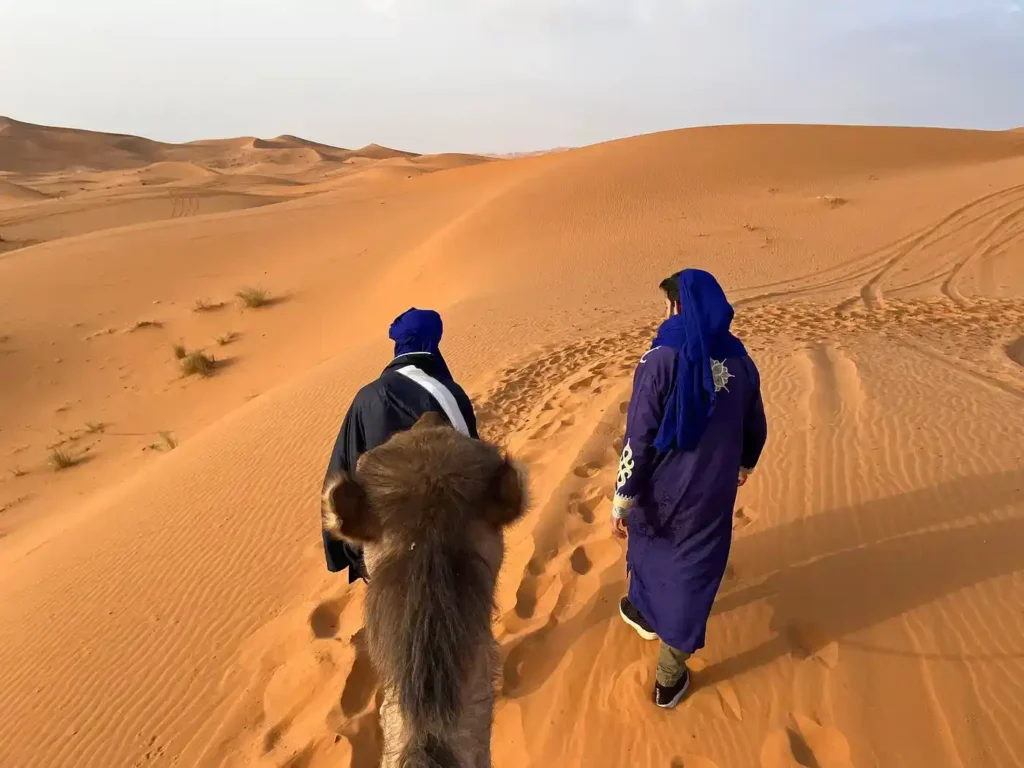
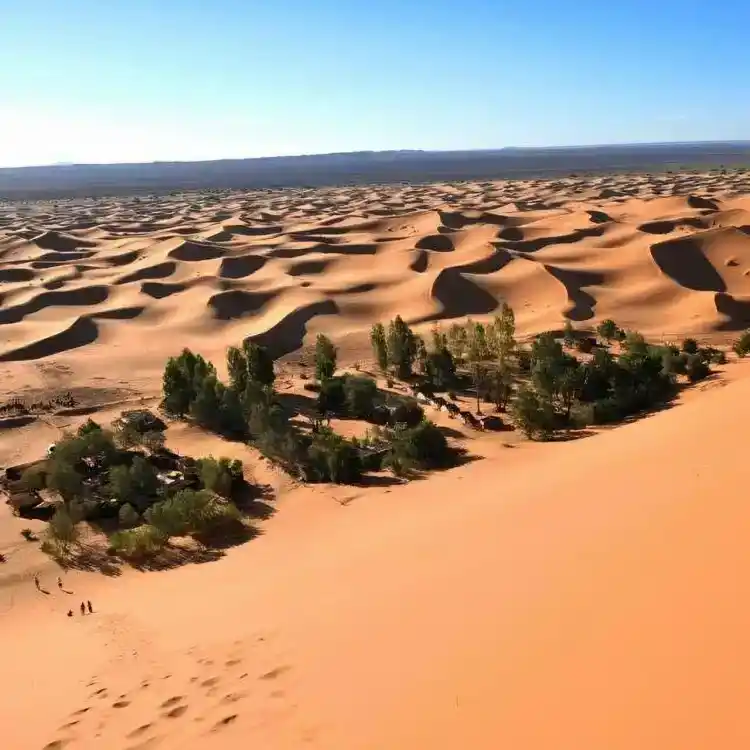
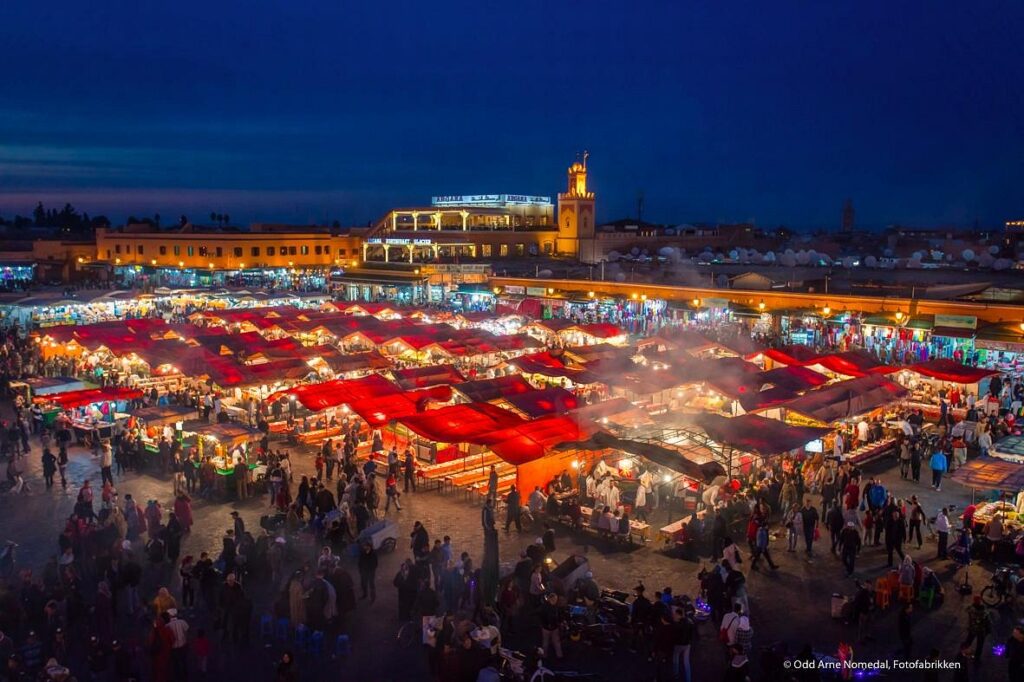
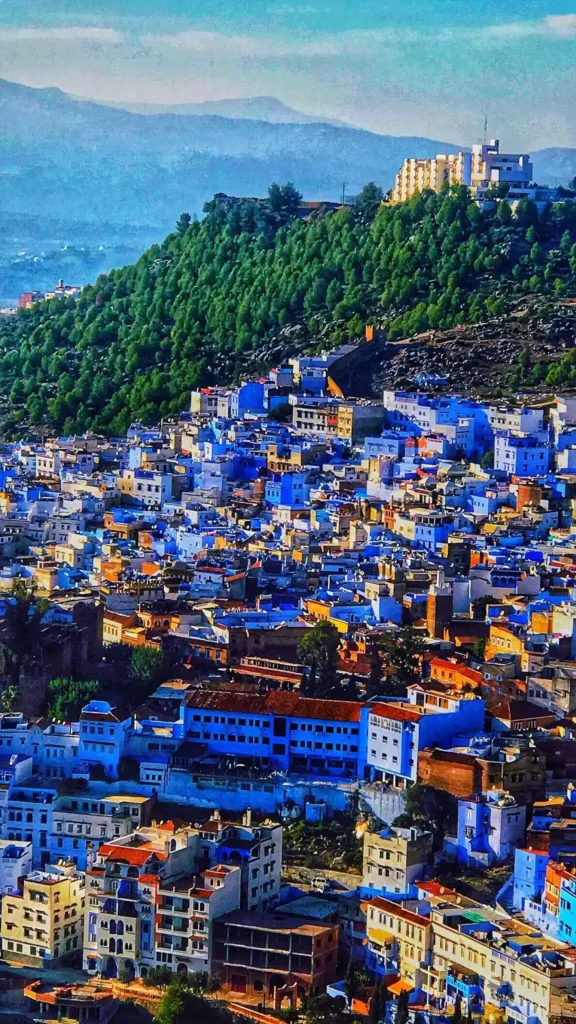
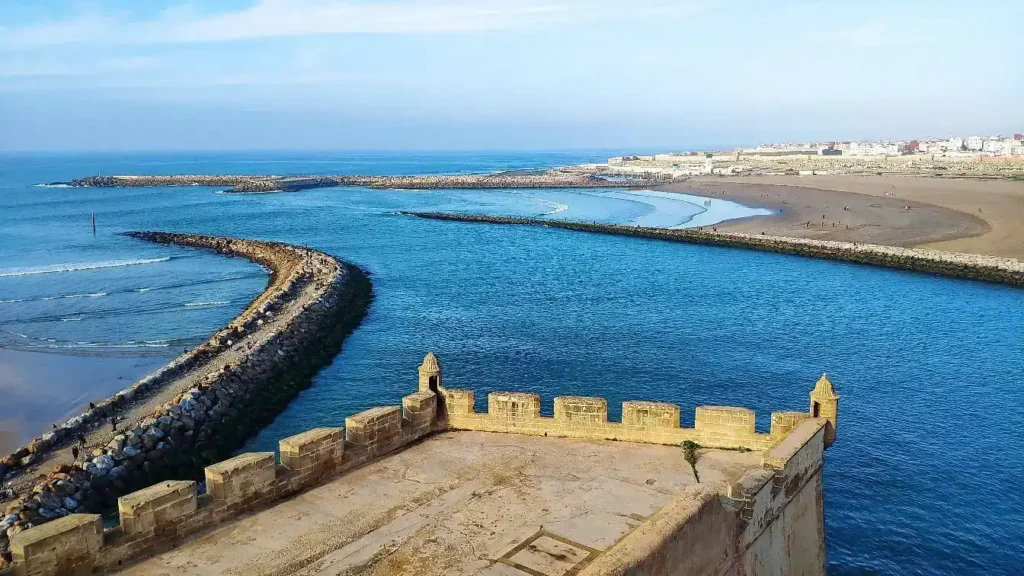
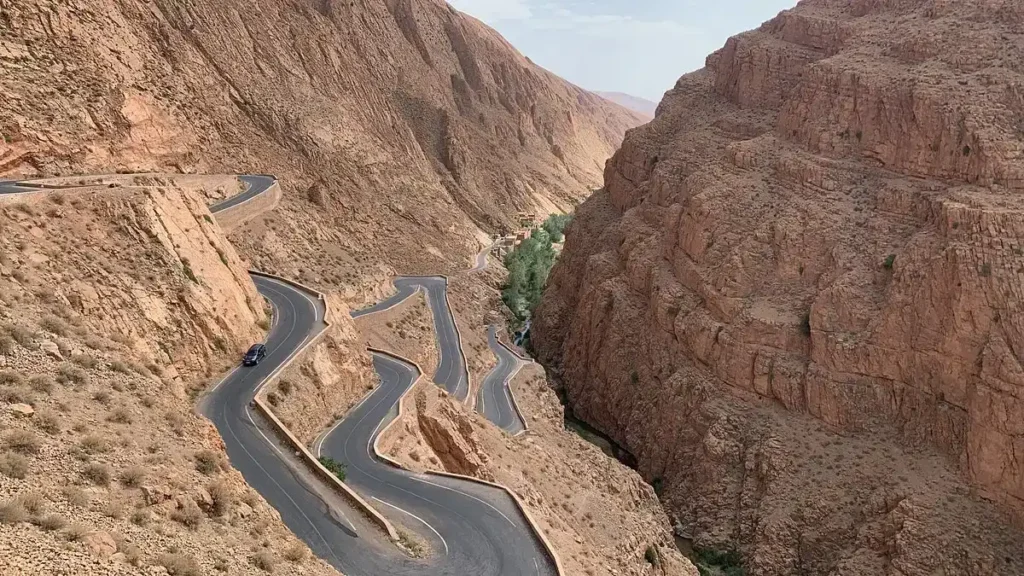
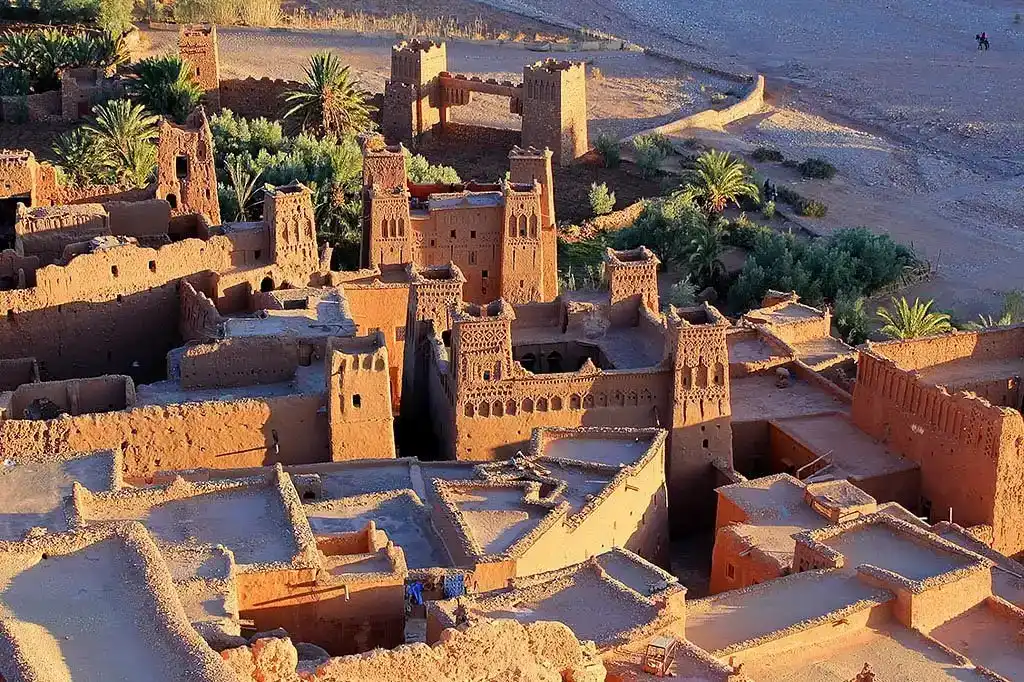
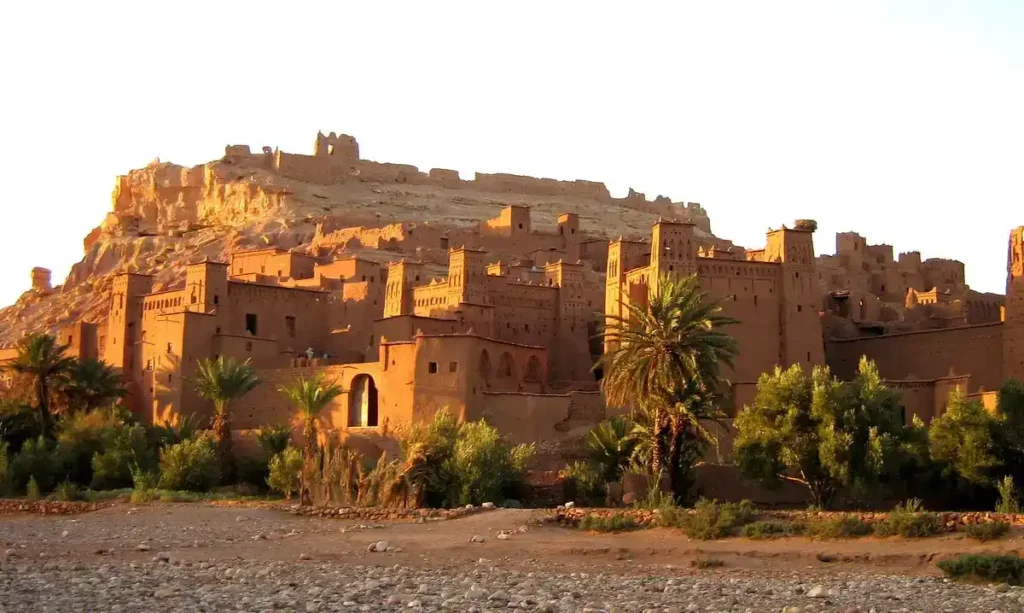

Another must-visit destination is Fes, known for its well-preserved medieval architecture and vibrant intellectual history. Fes el-Bali, the older part of the city, is home to the world’s oldest university, Al Quaraouiyine, and is a UNESCO World Heritage site. The narrow winding streets are filled with the scents of spices and leather, and you can witness the traditional methods of tanning in the famous Chouara Tannery. As you navigate through the labyrinth, you’ll stumble upon hidden gems such as the Bou Inania Madrasa, an architectural marvel adorned with intricate wood carvings and stunning tile work.
In addition to Fes, the coastal city of Essaouira offers a refreshing contrast with its laid-back atmosphere and stunning ocean views. The city’s medina, also a UNESCO World Heritage site, is characterized by its whitewashed buildings with blue accents, bustling fish markets, and vibrant art scene. Stroll along the historic ramparts for panoramic views of the Atlantic Ocean and try local delicacies at the seafood stalls lining the port. Essaouira is also known for its annual Gnaoua World Music Festival, attracting artists and visitors from around the globe, making it a perfect blend of culture and relaxation.
The Sahara Desert is another highlight that simply cannot be missed. Venturing into this vast expanse of golden dunes allows travelers to experience the raw beauty of nature. Merzouga, a small village on the edge of the desert, serves as the gateway for camel treks into the Sahara. As the sun sets, the landscape transforms into a surreal canvas of colors, creating a magical moment that many travelers cherish. Spending a night in a traditional Berber tent, stargazing in the clear desert sky, and enjoying a campfire under the stars are experiences that will leave you in awe.
For those seeking adventure, the Atlas Mountains provide a stunning backdrop for trekking and exploring traditional Berber villages. The Toubkal National Park is home to Jebel Toubkal, the highest peak in North Africa, where intrepid hikers can challenge themselves with a rewarding climb. Along the way, you’ll encounter lush valleys, cascading waterfalls, and terraced fields that showcase the region’s agricultural practices. Local guides can enrich your experience, sharing stories and insights about the Berber culture and traditions that have thrived in these mountains for centuries.
Lastly, don’t overlook the coastal city of Casablanca, which is often seen as the modern face of Morocco. While it may lack the historical charm of other cities, its vibrant urban scene and impressive landmarks, such as the Hassan II Mosque—the largest mosque in Africa—are worth a visit. The mosque, perched on the edge of the Atlantic Ocean, boasts stunning architecture and intricate mosaics, offering breathtaking views of the coastline. The city’s lively cafés and restaurants provide a taste of contemporary Moroccan life, blending traditional flavors with modern influences.
In conclusion, Morocco’s must-visit destinations offer a rich tapestry of experiences, each contributing to the country’s allure. From the bustling streets of Marrakech to the serene landscapes of the Sahara, every corner of Morocco is steeped in history and culture, promising an unforgettable adventure. Whether you are drawn to the vibrant souks, the tranquil gardens, or the majestic mountains, Morocco invites you to explore its wonders and unlock the secrets that make it truly special.
Cultural etiquette and customs: Navigating Morocco: A Guide to Respectful Cultural Etiquette
Journey to the heart of Morocco with cultural sensitivity. This guide unveils essential etiquette and customs, from greetings and dining to dress code and Ramadan observance, ensuring a respectful and enriching travel experience
Morocco Travel Essentials: A Quick Guide to Cultural Do’s and Don’ts
Morocco is a captivating blend of ancient traditions and modern influences, offering visitors a wealth of cultural experiences. To ensure a smooth and respectful journey, it’s essential to understand local customs and practices. Here’s a quick guide to the cultural do’s and don’ts in Morocco:
Do’s in Morocco:
- Respect Dress Codes:
While Morocco is more liberal than some neighboring countries, modest clothing is appreciated, especially in rural areas and religious sites. For women, covering shoulders and knees is considered respectful, and a lightweight scarf can be handy. - Learn Basic Arabic or French Phrases:
Moroccans appreciate when visitors make an effort to speak Arabic greetings like “Salam Alaikum” (peace be upon you) or French phrases such as “Bonjour” (hello). - Practice Hospitality Etiquette:
If invited to a Moroccan home, bring a small gift such as sweets or fruit. Remove your shoes if the hosts do so and accept tea when offered—it’s a symbol of friendship. - Respect Religious Practices:
Morocco is predominantly Muslim. During prayer times, allow space for worshippers. Visiting mosques is generally restricted to Muslims, but exceptions like the Hassan II Mosque in Casablanca welcome tourists.
Don’ts in Morocco
- Avoid Public Displays of Affection (PDA):
Holding hands is fine, but kissing or overt displays of affection in public are frowned upon. - Don’t Photograph People Without Permission:
Many Moroccans, especially in rural areas, are wary of being photographed. Always ask politely before taking pictures, particularly of women and children. - Refrain from Drinking Alcohol in Public:
While alcohol is available in Morocco, consuming it publicly or outside designated areas is considered disrespectful. - Don’t Rush Mealtime:
Meals in Morocco are social and leisurely. Savor the experience, and avoid appearing impatient. - Avoid Discussing Sensitive Topics:
Politics, religion, and the monarchy are deeply respected subjects. Approach these topics with caution and sensitivity.
Essential travel tips for visiting Morocco:Your Ultimate Guide
Morocco, with its vibrant culture, stunning landscapes, and historic cities, is a top destination for travelers seeking adventure and unique experiences. To make the most of your trip, it’s crucial to be prepared. Morocco’s rich cultural heritage is deeply rooted in Islamic traditions, so understanding local customs is essential. For example, dressing modestly, particularly in cities like Marrakech and Fes, is appreciated, especially when visiting religious sites. Women may find a scarf useful for covering shoulders or hair when needed. Additionally, learning Arabic phrases like “Salam Alaikum” (peace be upon you) or using French greetings such as “Bonjour” can help you connect with locals. Hospitality is key in Moroccan culture, so accepting offers of mint tea or small gestures of kindness is highly valued.
- While Morocco is generally safe for tourists, taking precautions enhances security. Avoid scams by being cautious of unsolicited guides or offers that seem too good to be true. Stick to official taxis or pre-arranged transfers, and keep your valuables secure in a money belt or locked in your accommodation. The food scene is another highlight of Moroccan travel, with dishes like aromatic tagines and sweet mint tea. Sampling street food such as sfenj (Moroccan donuts) or harira (soup) offers an authentic taste, but it’s advisable to stick to bottled water to avoid stomach issues.
- When packing for Morocco, it’s important to consider the varied climate. Layered clothing works best for adapting to chilly mornings in the Atlas Mountains and warm afternoons in the desert. Don’t forget essentials like sunscreen and hats for the intense sun, particularly in the Sahara, and comfortable shoes for navigating cobbled streets and uneven medina paths. Shopping in Morocco’s souks is an adventure in itself, and bargaining is part of the experience. Start by offering about half the price initially quoted, maintain a friendly demeanor, and be prepared to walk away—often, sellers will call you back with a better offer.
- Respect for religious practices is important in Morocco. During Ramadan, for instance, many locals fast from dawn to sunset, so showing consideration during this time is appreciated. While non-Muslims are generally not permitted inside mosques, exceptions like the Hassan II Mosque in Casablanca are worth a visit. Planning your itinerary wisely ensures a balanced experience. From bustling medinas in Marrakech and Fes to the Sahara Desert and Atlas Mountains, Morocco offers a diverse range of attractions. Cultural experiences, such as attending traditional music performances or learning Moroccan cooking, add depth to your trip.
- Understanding Morocco’s currency and payment norms is also essential. Cash is often preferred in souks and small shops, though larger establishments may accept cards. Exchange money at official bureaus or banks for the best rates, and remember that tipping is customary, typically 5-10% in restaurants or small amounts for helpful services. For transportation, use ONCF trains and CTM buses for reliable intercity travel, negotiate fares for petit taxis, and consider car rentals for remote areas if you’re comfortable with local traffic norms.
- Finally, while planning is important, leave room for spontaneity. Wandering through hidden alleys, chatting with locals, and embracing unplanned experiences often lead to the most memorable moments. By keeping these essential tips in mind, you’ll be well-prepared to navigate Morocco’s vibrant streets, breathtaking landscapes, and warm hospitality. Pack your sense of adventure, and get ready for a journey you’ll never forget!
Best time to visit Morocco
The best time to visit Morocco largely depends on your preferred activities and destinations. Spring (March to May) and fall (September to November) are considered the most pleasant seasons, offering mild temperatures ideal for exploring cities, hiking in the Atlas Mountains, or visiting the Sahara Desert. During these months, the weather is neither too hot nor too cold, making outdoor adventures more enjoyable. Summer (June to August) is perfect for coastal regions like Essaouira and Agadir, where the Atlantic breeze provides relief from the heat. However, inland cities like Marrakech and Fes can be extremely hot during this time. Winter (December to February) is a good choice for travelers looking to experience the snow-covered Atlas Mountains or enjoy fewer crowds in popular tourist spots, although nights can be chilly. Plan your visit according to your interests to make the most of Morocco’s diverse climate and attractions.
Transportation options in Morocco
For transportation, Morocco offers a variety of options to suit every traveler. The country’s extensive train network, operated by ONCF, connects major cities like Casablanca, Rabat, and Marrakech efficiently and affordably, making it a top choice for comfort and convenience. For long-distance travel, CTM and Supratours buses provide reliable and budget-friendly options with routes to remote areas. In cities, petit taxis are a quick way to get around, but always negotiate the fare beforehand if a meter isn’t used. Shared grand taxis are a popular choice for intercity travel, especially for shorter distances. If you’re feeling adventurous, renting a car is ideal for exploring off-the-beaten-path destinations like the Atlas Mountains or the coastal towns, but be prepared for varying road conditions. For a unique experience, consider camel rides in the desert or horse-drawn carriages in cities like Marrakech. These diverse transportation options make navigating Morocco both practical and memorable.
Accommodation options in Morocco
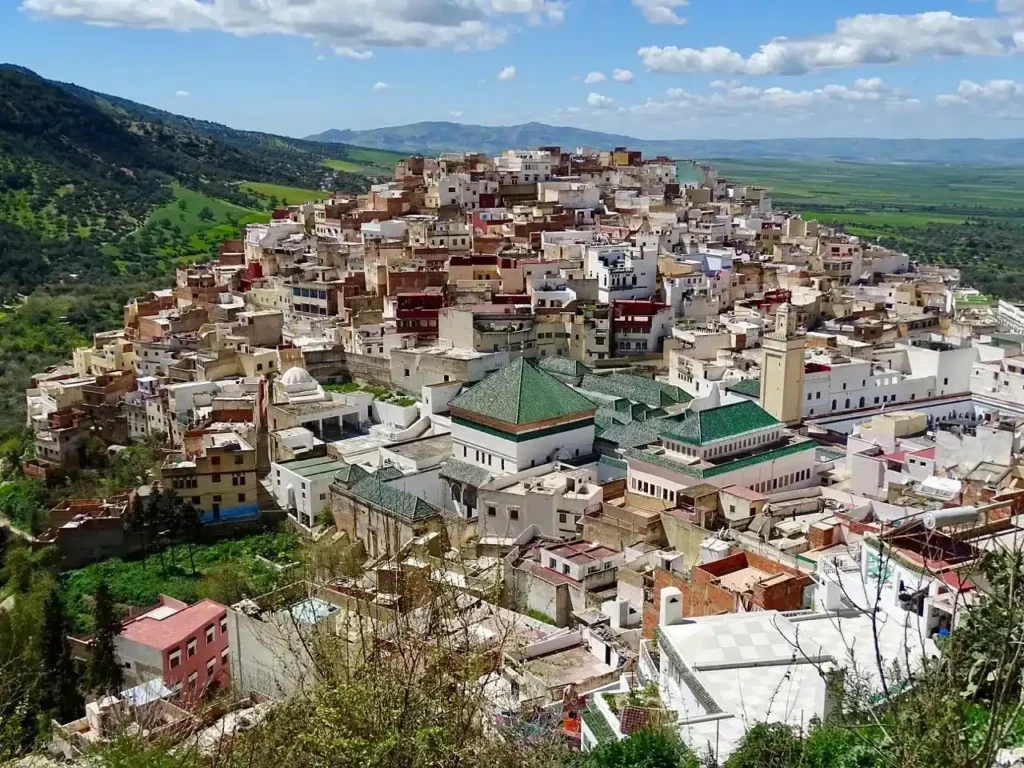
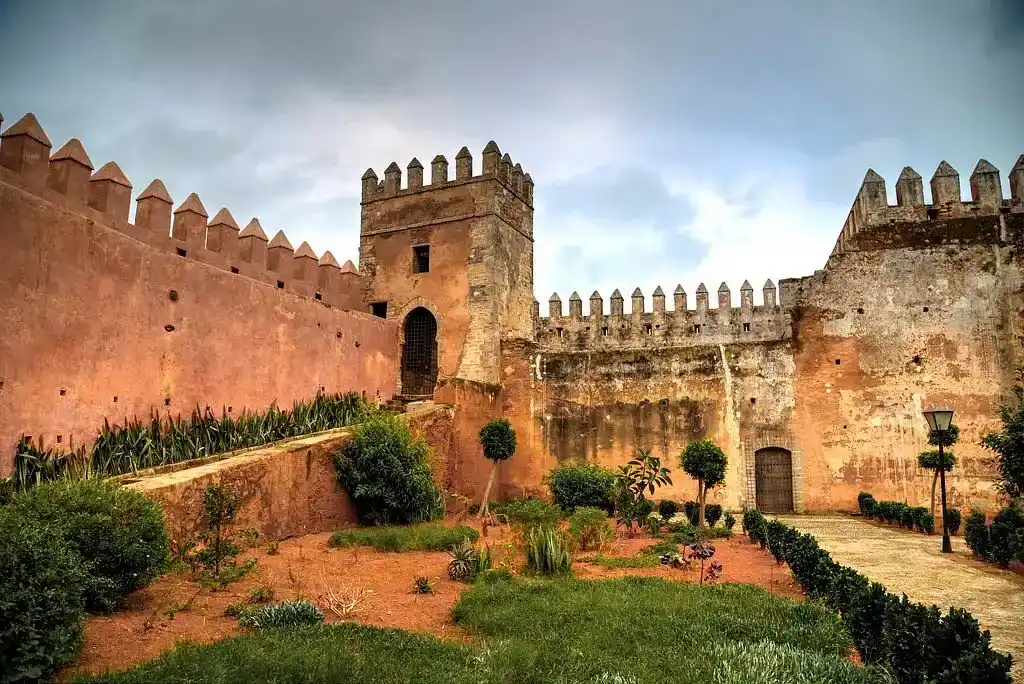
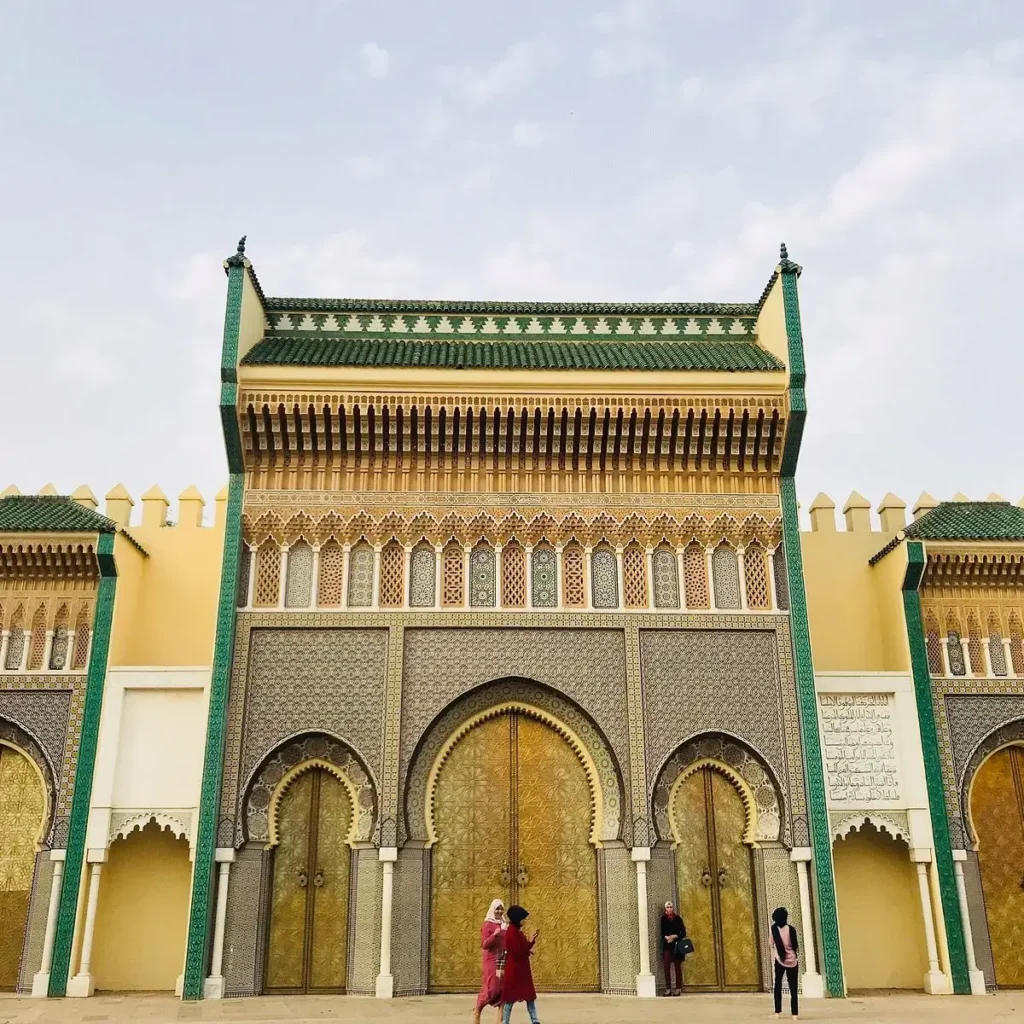
Morocco offers a wide range of accommodations to suit every traveler’s budget and preference. From luxurious resorts to traditional riads, there is something for everyone in this vibrant and culturally rich country. Here’s a comprehensive guide to help you choose the perfect place to stay.
Riads In Morocco:
A riad is a traditional Moroccan house or palace with an interior courtyard or garden. Often located in the medinas (old towns), riads provide an authentic Moroccan experience. They typically feature stunning architecture, intricate tilework, and serene atmospheres.
- Best for: Couples, families, and cultural enthusiasts.
- Popular locations: Marrakech, Fes, Essaouira.
- Top picks: Riad Yasmine (Marrakech), Riad Fes (Fes).
Hotels Of Morocco:
Morocco has a variety of hotels ranging from budget-friendly options to five-star luxury resorts. Many international chains and boutique hotels offer world-class amenities and exceptional service.
- Best for: Business travelers, families, and luxury seekers.
- Popular locations: Casablanca, Rabat, Tangier.
- Top picks: Four Seasons Resort (Marrakech), Sofitel Rabat Jardin des Roses (Rabat).
Guesthouses and Bed & Breakfasts in Morocco:
Guesthouses and B&Bs are perfect for travelers seeking a cozy and intimate setting. Hosts often provide personalized service and valuable insights into local culture and attractions.
- Best for: Solo travelers, budget-conscious visitors, and small groups.
- Popular locations: Chefchaouen, Ouarzazate, Merzouga.
- Top picks: Dar Echchaouen (Chefchaouen), Kasbah Ait Ben Moro (Ouarzazate).
Morocco Luxury Desert Camps:

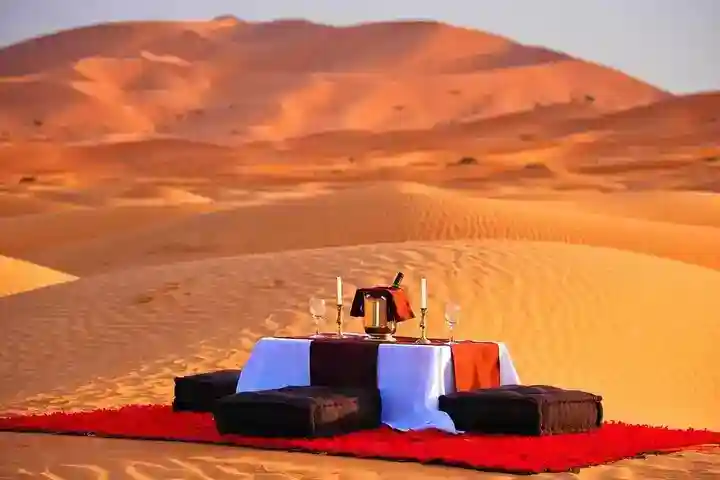
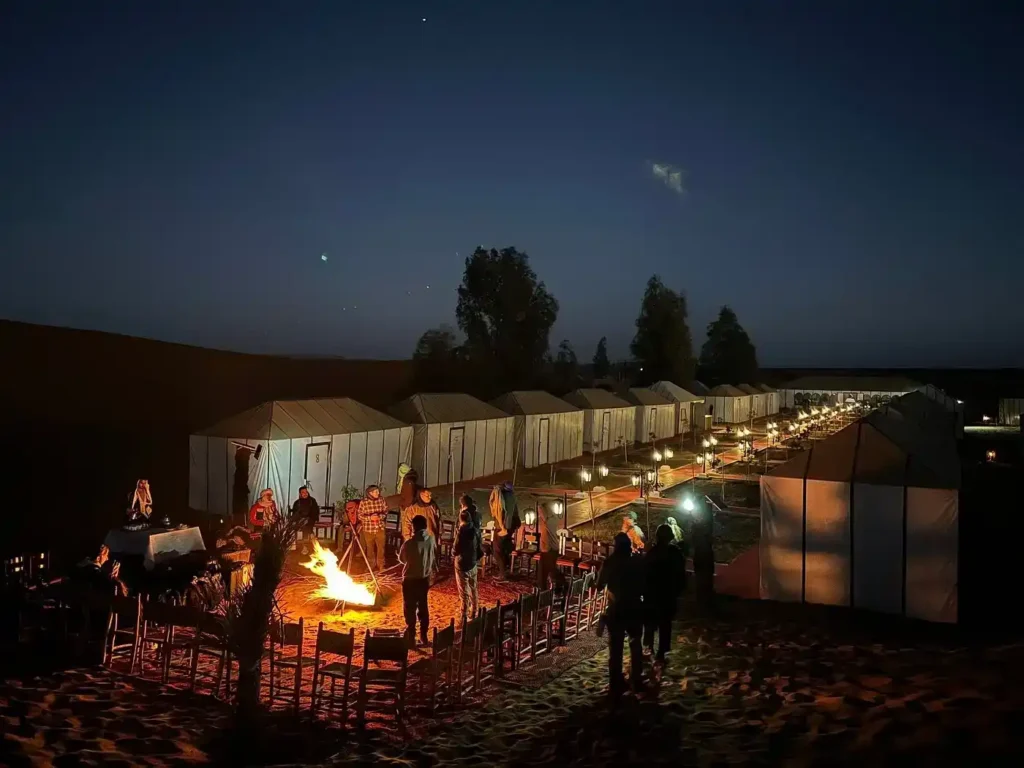
For an unforgettable experience, spend a night under the stars in a desert camp. These camps range from basic setups to luxurious glamping sites, complete with private tents and gourmet meals.
Top picks: Exceptional Luxury Camp
(Erg Chebbi), Merzouga Desert Campsite (Merzouga ).
Best for: Adventure seekers and nature lovers.
Popular locations: Erg Chebbi, Erg Chigaga.
Safety tips for traveling in Morocco
Morocco is generally considered a safe destination for travelers, but it’s always wise to stay informed and take precautions to ensure a smooth and enjoyable trip. Here are some essential safety tips:
To ensure a safe and enjoyable trip to Morocco, it’s important to take a few health precautions. First, drink bottled or filtered water to avoid potential stomach issues, as tap water may not be safe for all travelers. Carrying basic medications and a first-aid kit is also recommended to be prepared for any emergencies. Additionally, make sure your vaccinations are up to date before traveling to protect yourself from preventable diseases. By following these safety tips and staying mindful of health concerns, you can minimize potential risks and fully enjoy the rich culture and beauty Morocco has to offer.
Conclusion and final thoughts
In conclusion, Morocco offers a vibrant and unforgettable travel experience, filled with rich history, stunning landscapes, and unique cultural encounters. By taking the necessary health precautions, such as drinking bottled or filtered water, carrying basic medications. Proper planning, awareness, and a sense of adventure will ensure a safe, memorable journey through this enchanting country. Whether exploring the bustling souks, relaxing in the desert, or immersing yourself in the local traditions, Morocco is a destination that promises to leave a lasting impression.
